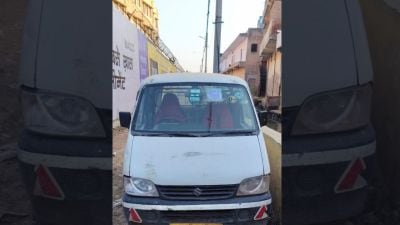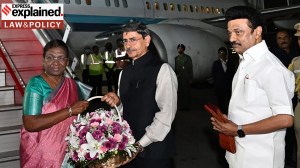Stepping on the gas
Chairman of Tata Engineering and Locomotive Company, Ratan Tata must be a happy man.Tata’s Team A has just finished scripting the bigge...

Chairman of Tata Engineering and Locomotive Company, Ratan Tata must be a happy man.
Tata’s Team A has just finished scripting the biggest turnaround story of India Inc — proving all the critics wrong.
The truckmaker has survived one of its biggest crises ever, after it gambled over Rs 1,700 crore to execute its dream of being a car maker. Back then, even well-wishers and insiders wondered about the rationale of launching a debut car to compete with the world’s best in a 50-model crowded industry.
The investment in the car project came at a time when its core business of commercial vehicles was struggling due to a slowing economy, low demand and increased competition. After news of the ambitious venture hit markets, the company’s share price collapsed by over 50 per cent in one year to hit an all-time low of Rs 58 in May 2001. Everyone was just waiting for the giant to fall. But the Tatas just kept going.
The Turnaround
First, the figures. For the financial year ended March 31, 2003, Telco posted a consolidated net profit of Rs 298.67 crore, compared to a net loss of Rs 107.19 crore a year ago. The loss was Rs 500 crore two years ago.
In its results announced on Wednesday, the company said sales grew 21 per cent to Rs 9,093 crore for the entire year as it sold 219,859 vehicles. And its share price has bounced back to the Rs 165-175 band.
“Telco’s turnaround story is a perfect example of corporates taking risks and responsibilities. The company’s gamble in a passenger car market consisting of 12 different companies shows that their strategy has worked,” says Venkat Aiyar, a Mumbai-based auto analyst.
While its car business received the consumer’s full attention, Telco’s commercial vehicle sales also topped the sales growth chart with a 30 per cent growth in FY 2003 to 1.07 lakh — the highest in the last six years.
The Reasons
The main reason for Telco’s turnaround has been the speedy ‘mid-way correction’ by Bombay House (Tata’s South Mumbai headquarters), after consumers rejected the first lot of Indicas. The bad press followed soon after. The car had so many teething troubles that in any other country the model would have been recalled. And then Version 2 was launched.
“The Indica became profitable four years after its launch and passenger vehicle sales crossed one lakh units with a 17 per cent increase in sales volumes. Indigo, which was launched in December, emerged as the market leader in the ‘C’ segment with a market share of 26 per cent,” says Praveen Kadle, executive direction (finance), at Telco.
Apart from product modification, the Ratan Tata, Chairman, Telco personally poached Dr V. Sumantran from General Motors of United States to give more focus to the company’s passenger car business. Clearly, the company’s focus changed from Tata Administrative Services to hiring from outside.
The car was also made more affordable. Barring the first lot of dissatisfied customers, the company’s Indica V2 — selling at around Rs 3.55 lakhs in Thane — is the cheapest diesel car to own. Its running costs are low and, of course, its the real Made-In-India car.
“Customers are happy with Indica V2’s performance as evident from its rising sales. It is selling due to its fuel efficiency. Its nearest competitor is priced Rs 30,000 more. It’s a big cost advantage for the price-sensitive Indian customer,” says a dealer of Telco’s competitor.
The company also launched Indigo, the entry level mid-sized segment car, during December 2002. It sold 6,813 Indigos during the last quarter that enabled the firm to garner a 26 per cent market share. Consumers say that Indica offers value-for-money and comfort. “Their V2 version as compared to its previous offering is amazing. With petrol prices soaring, I bought this car due to its diesel engine,” says Jeetraj Shah, an insurance agent who bought the Indica V2 after selling his petrol Zen.
The Future
The future of Telco will depend on how it expands its market not only in India but spreads its wings to other countries too. The company has the capabilities to storm other markets with its products. It has already signed a deal with Rover, UK to launch its products in UK markets. As per the deal, Rover will market Telco’s passenger car, Indica, in UK with a different brand name. Though annual volumes are estimated at just around 12,000 units per annum, it assumes significance as an Indian manufacturer is able to exploit the advantage of low-cost manufacturing and a marketable product.
As for the home market, the arrival of Fiat Palio Diesel is a cause of concern but the Rs 40,000 price difference can still tilt the balance in Telco’s favour. Maruti is also planning to aggressively sell its Zen Diesel.
The company has to fulfil Dream Part II of Ratan Tata to launch a Rs 1 lakh car.
Photos


- 01
- 02
- 03
- 04
- 05





























